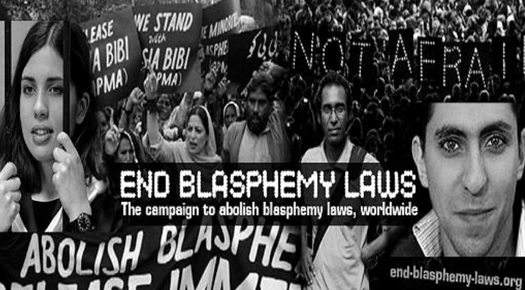
The United States Commission on international religious freedom (USCIRF) is an independent, bipartisan
U.S. federal government commission created by the 1998 International Religious Freedom Act (IRFA) that monitors the universal right to freedom of religion or belief abroad.They released their periodic report on blasphemy laws, which are, believe it or not, very strict in some countries.The Commission ranked those countries on a scale from 0-80, where 80 represents a country violating all sorts of international principles of freedom many times over.
According to the Commission’s report called “Respecting rights –Measuring the world’s blasphemy laws” inherent in religious freedom is the right to believe or not believe as one’s conscience leads, and live out one’s beliefs openly, peacefully, and without fear. Freedom of religion or belief is an expansive right that includes the freedoms of thought, conscience, expression, association, and assembly.
Blasphemy law penalize expression or acts deemed blasphemous, defamatory of religions, or contemptuous of religion or religious symbols, figures, or feelings, include punishments ranging from public censure and fines to imprisonment and death. Blasphemy is widely defined as “the act of insulting or showing contempt or lack of reverence for God,” and billions of people view this act deeply offensive to their belief in a deity or deities.
The research team of USCIRF developed eight indicators which reflect international law principles or norms and questions within each indicator:
- Freedom of Opinion and Expression
- Freedom of Thought, Conscience, and Religion
- Legality
- Proportionality of Punishment
- Nondiscrimination and Equality (Discrimination Against Groups)
- Nondiscrimination and Equality (State Religion Protections)
- Protection of Privacy
- Hierarchy of the Law
The results obtained by USCIRF are really discouraging. According to the report, blasphemy laws are very widespread; actually 71 countries maintain such statutes.

Most blasphemy laws were embedded in the criminal codes and 86 percent of states with blasphemy laws prescribed imprisonment for convicted offenders. Some blasphemy statutes even imposed the death penalty.
A majority—62 percent—of these laws received scores between 29 and 40 points out of 80 total points, indicating that all blasphemy laws studied deviate from some—and most deviate from a significant number—of the international and human rights law principles examined.
The countries with the worst results are certainly Iran, Pakistan, Yemen, and Somalia, all of which scored in the 60s and all of which have an official state religion. Italy was on there with a 56.2. Greece scored in the mid-40s. Germany, Finland, Spain, and Ireland all made the list, more because blasphemy laws remain on the books, not because they are really applied.
Photo Credits: Heather Hastie
